What a weird sport!
Hockey can be a cruel and unforgiving game. You can follow a good process, make significantly more high-value plays than your opponent, and still lose the game because of randomness.
This is why stats nerds like myself keep preaching that “goaltending is voodoo” — because of nights like these. We might as well call this The Karel Vejmelka Game.
Image from HockeyViz.com
The Leafs should have scored at least five goals in this game, maybe even six (since you can’t score 5.6 goals on the scoreboard). They only ended up scoring one because, again, save percentages fluctuate like crazy in one-game samples.
That’s why I tend to ignore the noise for the most part in these postgame evaluations, trying to focus more on the repeatable aspects of hockey. Whether you’re a coach, player, scout, or nerdy fan reading a postgame blog, I’d like to think we can all understand the value in trimming the fat before gobbling up a juicy steak.
It can be frustrating on nights when the pucks don’t go in, especially for a franchise whose shooting percentage has infamously dried up in the most crucial moments late in multiple playoff series. Despite all of that, I can’t let it overwrite everything we know about the sport based on years of concrete evidence.
Dry spells happen. Hot goalies happen. It happened on Wednesday night in Arizona and now we’re going to talk about it. If you’re looking for an emotional overreaction to a loss, I’m sure you can find it in this market, but it won’t be here.
I hope you’re ready for some optimism. It’s time for some Leafs Report Cards!
5 Stars
Auston Matthews (C, #34) — Tonight’s game was a great example of why I think Auston Matthews should be in consideration for the Selke Trophy this season. There are obviously other great candidates (i.e. Patrice Bergeron, Anthony Cirelli, Elias Lindholm and/or Matthew Tkachuk). One dominant 200-foot game against a borderline AHL team shouldn’t persuade you too much one way or the other.
That said, Matthews has been consistently providing stellar defensive performances like these all season against top competition. How much penalty killing impacts voting is another discussion for another day, so let’s get back to actually evaluating his performance on Wednesday evening.
Defensively, Matthews was a puck-hound, constantly pick-pocketing opposing puck carriers with a well-timed stick lift. He was also excellent at intercepting passes in the neutral zone. Those takeaways helped lead directly to offense the other way, where Matthews generated a team-high seven scoring chances from the slot.
To put into context how much he controlled the game, Toronto had 15 more shots than Arizona and 10 more from the slot when Matthews was on the ice at 5v5. He was snakebitten until he finally zipped one past Vejmelka to start the third period, although Matthews easily could have picked up a few more points. He hit the post on the power play with a violent wrister from the right dot. Morgan Rielly also hit the post on a play created by a Matthews takeaway behind the net.
My one nitpick is the same one I had last night against Vegas; his lack of assertion on zone entries with the man advantage.
I want to see him assertively skate the puck through the neutral zone with speed and slice through the opposing defense, not pass it off to someone else who can gain the zone for him. In Matthews’ defense, here’s a look at the zone entry attempt immediately afterward.
Now that’s more like it. Later in the game, he made a similar play on a 6v5 entry, dictating play by calling his own number and gaining the zone with speed. If he can start doing that with more consistency, it’s only going to help his already stellar point production.
John Tavares (C, #91) — The Leafs‘ captain followed up his worst game of the year with his best game of the year, at least in my opinion. That was the best I’ve seen him move the puck all season, putting on an absolute passing clinic.
I like taking notes throughout the game to help me remember all of the little plays that made a difference (instead of live-tweeting those thoughts like I used to back in the day), so here’s a look at what I jotted down with respect to his best passes:
- Completes a crafty 180 touch pass to exit the defensive zone
- Covers for a pinching D, receives the puck up high, and immediately finds William Nylander in the slot for a Grade-A chance
- Crisp pass right through the neutral zone trap for a quality rush opportunity
- Whatever the hell you want to call this
That’s just silly.
What’s even more silly is Tavares finishing the night with zero assists — and points! Sometimes life just isn’t fair.
Ondrej Kase (RW, #25) — He’s looked so good alongside Matthews. In this game, Kase went hard to the net on multiple occasions to generate chances from in tight, even drawing a penalty on one of those instances. He also made some brilliant passes in the neutral zone, getting his linemates into open space off the rush, most notably Michael Bunting.
I also loved his ferociousness in battles along the wall, winning back 50-50 pucks to keep his team on offense. His combination of skill, will, and scoring talent make him a useful addition to any line, but considering how well he’s been playing lately, I’d argue the Leafs need to keep him in the top six even when Mitch Marner returns.
Whether that means going with a Nylander-Tavares-Marner line or a Nylander-Tavares-Kase line is up to you. Either way, it’s hard to justify going back to third-line minutes given Kase’s impact on the game right now.
Jake Muzzin (LD, #8) — That’s the best we’ve seen Muzzin defend in a long time. He was defending speed well in transition, closing the gap at Toronto’s blue line to prevent clean entries. The odd time that Arizona did gain the zone, Muzzin made sure to take away the passing lane through the middle of the ice, much like we’ve seen from Brodie in his Leafs tenure.
Muzzin’s cycle defense was also great, getting in the lanes to deter opposing players from penetrating the slot. His puck-moving was also much smoother than usual. Overall, he just looked composed.
That’s the Jake Muzzin we all know and love.
4 Stars
Ilya Mikheyev (LW, #47) — I haven’t been a huge fan of the Mikheyev-Kampf-Simmonds combination as a whole so far, but Mikheyev’s individual performance was impressive on Wednesday night. As always, he was using his long stick to get in on the forecheck and make life miserable for opposing defensemen going back on loose pucks.
What’s more impressive is that Mikheyev was carrying the load offensively, using his speed to lug the puck up the ice and complete passes through the middle of the defense. We’ve seen him go end-to-end before. What we haven’t seen is the vision to find those east-west passes that significantly boost your team’s shooting percentage.
Now, watching him on the half-wall of PP2 has been a tad hilarious lately, but let’s face it, that’s not his role in the grand scheme of things. I don’t want to criticize him too heavily for that aspect of his game. He makes his living at 5v5 and 4v5, where he did quite well against Arizona.
Michael Bunting (LW, #58) — Michael Bunting was… well, Michael Bunting in this game. He went hard to the net, screened the goalie, and picked up a few chances in tight off of deflections and rebounds. Oh yeah, he also drove an opposing player insane and drew a penalty. “Antoine Roussel gets two minutes for…being Antoine Roussel” is how Ray Ferraro eloquently put it.
I’m not sure if Bunting deserved the offsetting minor on that play, but maybe that’s just Michael Bunting getting two minutes for being Michael Bunting.
William Nylander (RW, #88) — The pros significantly outweighed the cons for Nylander in this game. The Leafs were living in the offensive zone when he was on the ice. He was individually responsible for a lot of that thanks to his puck transporting. We also got to see him find open ice again off the rush, earning himself a pair of 2-on-1s, where he hit the post on one and missed the other but then immediately made a pass out front for a Grade-A Matthews chance.
My biggest criticism of his game tonight is his shot selection. We all know he can shoot the puck, but he isn’t Alex Ovechkin from the top of the left circle. There were three separate occasions where he took an unscreened slapshot from distance and it hit Vejmelka right in the logo. It’s one thing when you one-time the puck after a seam pass. It’s another when you end an offensive possession with a low-percentage shot.
Justin Holl (RD, #3) — He had a few “whoopsie” moments with the puck on simple 5-10 foot passes, but he also made a few confident plays up the ice by activating into the play and beating his man down the wing.
There was one rush in particular where I was yelling at my screen “No! No! Pass it! PASS!” and he proceeded to drop his shoulder, absorb contact and blow by his man. He then took the puck below the goal line and attempted a feed out front, which just missed but was still a high-percentage play. I also liked his gap in transition, keeping the Coyotes’ forwards close to him in the neutral zone.
3 Stars
Timothy Liljegren (RD, #37) — Much like in their previous game, I’ve got another hot take about a RHD who was on the ice for a goal against: I thought Liljegren played well tonight. Yes, I’m well aware that a puck bounced over his stick and ended up in the back of the net shortly afterward. I also saw the play where Phil Kessel dusted him down the left wing.
My counter is that he was otherwise great in transition defense, playing a tight gap and killing rushes before they had a chance to develop. This was my favourite play of his:
It’s not often you see a 3-on-2 broken up this early. That’s the benefit of gapping up in the neutral zone, which is one of Liljegren’s biggest strengths as a defender. He’s also a quick decision-maker with the puck, which we saw a few times both in the defensive zone on the breakout and in the offensive blue line to maintain possession.
Morgan Rielly (LD, #44) — Much like Liljegren, there’s a glaring error that stands out in my mind. TJ Brodie failed to cover his man on the game-winning goal, but Rielly also gave his man way too much room on that play. Throughout the large sample of the 2021-22 season, Rielly’s gap control has been significantly better than in years past, but tonight he reverted back to some of those bad habits.
The good news is that he made up for it with his offensive value, as usual. We already mentioned him hitting the post right after a Matthews takeaway. Rielly also had a few nice shots for redirections in tight, helping Nick Ritchie juice his xG numbers.
Alex Kerfoot (LW, #15) — He was a bit of a third wheel tonight at 5v5, although he did make a brilliant saucer pass to Nylander on their 2-on-1.
I’m starting to wonder if Kerfoot is Toronto’s best penalty killer. David Kampf is obviously fantastic in the faceoff circle, but after the puck is dropped, I think there’s an argument to be made that Kerfoot is their most impactful player at 4v5. He’s so good at clogging up the neutral zone and standing up on opposing players at the blueline.
Thanks to Arik Parnass’ research on the subject, we know that the best predictor of future success on the power play is the ability to gain the zone with possession and set up in formation. Kerfoot is phenomenal at preventing that, which is what makes him such a valuable penalty killer.
Kampf-Simmonds — Mikheyev carried the load for these two tonight, but they still had their moments. David Kampf didn’t do much offensively, but he isn’t paid to do that. He’s there for defense, and there was one play in particular that blew me away. Most forwards covering for a pinching defenseman are absolutely terrible at defending the rush as the F3. Kampf looked like a defenseman when he did it, gapping up and forcing a dump-in.
I also wasn’t blown away with Wayne Simmonds’ offense in this game, although he did have one gorgeous toe-drag off the rush that helped him create a scoring chance out of nothing. For the most part, his role is to provide energy, and he helped jolt his teammates in the third period with the hardest hit of the night. I always like it when you can hear a hit and it’s followed up by a strong shift or two from the team.
2 Stars
Petr Mrazek (G, #35) — How can you get two stars when you only give up two goals? Well, it’s when the other team only fired 18 shots your way and most of them weren’t too dangerous. Mrazek did make a couple big saves, most notably on Clayton Keller to start the game and Lawson Crouse on a power-play wrister through traffic.
What’s unfortunate is that Mrazek could have easily prevented the game-winning goal by getting his stick on the puck. It was the second cross-crease pass he’d allowed that game, which isn’t something you usually hear talked about with respect to goalie analysis. Blocking passes through the middle of the ice always feels like more of the defenseman’s responsibility, but when they go right through the blue paint and the netminder tries to make a play on it rather than getting across to his post, it’s on the goaltender.
The Engvall-less Fourth Line — I’m just going to say it: the Toronto Maple Leafs need Pierre Engvall. Without his puck transporting in the bottom six, they look listless trying to advance play up the ice with possession. As fun as it was to get a look at Joey Anderson in a Leafs uniform, the only NHL-calibre attribute I saw him bring tonight was his shot.
As a side-note, how many NHL-calibre traits has Nick Ritchie shown this season? He’s a sneaky good passer if you catch him on the right night. We know he has a great release despite his rotten puck luck. The issue is that he’s such a bad skater, he rarely gets himself into good spots offensively.
We’ll give him some credit for throwing his weight around a bit more and finding the inner zen to not retaliate after getting whacked in front, but it also feels like we’re really moving the goalposts for him at this point. He somehow ended up with five chances in tight and the team-lead in individual xG, so there’s that.
Jason Spezza is just looking for someone he can play off of offensively. He made a few nice passes in tight tonight, but also looked like he could have used the night off on the second half of a back-to-back. I hate to keep beating this drum, but why do NHL franchises insist on playing 35+ year-old veterans in these games? It feels like such a waste of fatigue that other sports have realized isn’t worth the trouble.
1 Star
Travis Dermott (LD, #23) — I really hate overanalyzing goals against. It’s something we do as a hockey community that often incorrectly skews our perception on players. If we pulled out the microscope for every scoring chance against, we’d probably arrive at better conclusions, but alas, nobody has time to do that.
Dermott’s turnover on the breakout was bad and it immediately resulted in a Grade-A chance from the slot. The puck then took a crazy bounce and somehow ended up in the net, so it’s the first shot you should’ve been more mad about, not the second one that crossed the goal line.
The reason he’s rated so low tonight is that, on top of that rough turnover, he also made an ill-advised pinch to allow a 2-on-1 to start the game. Dermott also made some bad decisions with the puck in the offensive zone. He used his skating ability to get himself into open ice but then used that space to get his own shot off instead of looking for the wide-open pass to a teammate.
He shot the puck here.
Dermott isn’t a goal scorer — Tavares is.
That screencap is a great example of why Dermott’s 5v5 assist rate is among the worst in the NHL over the last few years. As much as I try to pump up his value because of his strong numbers in transition D and on the breakout, his inability to make plays in the offensive zone really limits what I thought he could be as a player with his dynamic skating ability (or at least edge-work).
TJ Brodie (RD, #78) — Woof.
It’s not like Brodie to allow passes through the middle of the ice. That’s such an uncharacteristic play, I almost want to immediately forgive it, but it’s also the error that cost Toronto the game. Here I am, doing the thing I just said I hated from hockey analysts. I guess we’re all human after all.
Earlier in the game, Brodie pinched without F3 support — also not like him — which resulted in a 2-on-1 where an identical pass was made to Kessel at the right post and he fanned on it. Brodie’s lucky he wasn’t the goat on two goals against tonight.
As I like to say, good players have bad games.
Heat Map
Here’s a quick look at where each team’s shots were coming from at even strength, courtesy of Natural Stat Trick.
The team on the right won this hockey game.
Toronto controlled 66 percent of the shots and scoring chances at 5v5 and 33 percent of the goals because small samples are dumb.
Game Score
Game score is a metric developed by The Athletic’s Dom Luszczyszyn to measure single-game performance. You can read more about it here.
Tweets of the Night
TOR's breakouts have looked different in the past few games. Wingers leaving the zone and TOR looking to stretch the ice with longer passes.
It's gained them some rush chances but if the puck gets turned over it can lead to some dangerous chances against (i.e last goal against)
— Nick DeSouza (@NickDeSouza_) January 13, 2022
This is a great point by Nick. It reminds me a lot of the Blackhawks in their heyday, leaking out Patrick Kane so Duncan Keith could find him on stretch passes to burn opposing defenses for pressuring too heavily on the forecheck.
You have to be careful playing this type of hockey, but if you time your reads right, it can lead to goals off the rush. Just ask the 2015-16 and 2016-17 Stanley Cup Champions in Pittsburgh.
You know what gets really tiring? Controlling the play for 75% of the game but confidently knowing that will result in zero powerplay advantages.
— Active Stick (@TheOakLeafs) January 13, 2022
Are you new here?
Introducing our NHL player cards, finally available to all at @TheAthleticNHL – featuring a new design inspired by actual hockey cards:https://t.co/wlPWkT7AJi pic.twitter.com/7fsVpin0Qq
— dom at the athletic (@domluszczyszyn) January 12, 2022
I’m sure most of my readers are already familiar with Dom’s work, but these are spectacular. He’s really outdone himself, upgrading his player cards to help break down player value in an easy-to-digest manner.
Considering the importance of points in predicting future goals, I can see why he made goals and assists such a major component in these visuals.
"If fans don’t like it, or the media doesn’t like it, or whatever… it is what it is."
Connor McDavid was asked about Evander Kane potentially joining the #Oilers pic.twitter.com/oBsRHBpfPh
— Tim and Friends (@timandfriends) January 12, 2022
The face of the NHL, ladies and gentlemen.
Losing sucks and winning matters, but at what point does this sport that obsesses over “culture” and “accountability” actually start holding its most important figures accountable for literally shrugging off sexual assault allegations?
It’s exhausting being a hockey fan who cares about issues outside of on-ice results.
From Ethan Bear about the racist abuse he faced after the playoffs in Edmonton:
“The one thing that sucked is I didn’t feel like I had much support when it happened,” he says. “It was such a weird thing to go through, and it just felt like I was alone.” https://t.co/DaVsc0ddhU— kay (again) (@linecomposition) January 13, 2022
Yup.


![Sheldon Keefe on the Maple Leafs’ struggling power play: “[We’ve scored] one out of 11 high-danger chances in tight to the net… We have been in those spots and haven’t converted” Sheldon Keefe, playoff press conference](https://mapleleafshotstove.com/wp-content/uploads/2024/04/keefe-pc-game-3-218x150.jpg)

![Jim Montgomery Post Game, Bruins 4 vs. Leafs 2: “[Marchand] still manages to get under people’s skin, yet he doesn’t cross the line” Jim Montgomery, Boston Bruins post game](https://mapleleafshotstove.com/wp-content/uploads/2024/04/jim-monty-pg-to-218x150.jpg)




















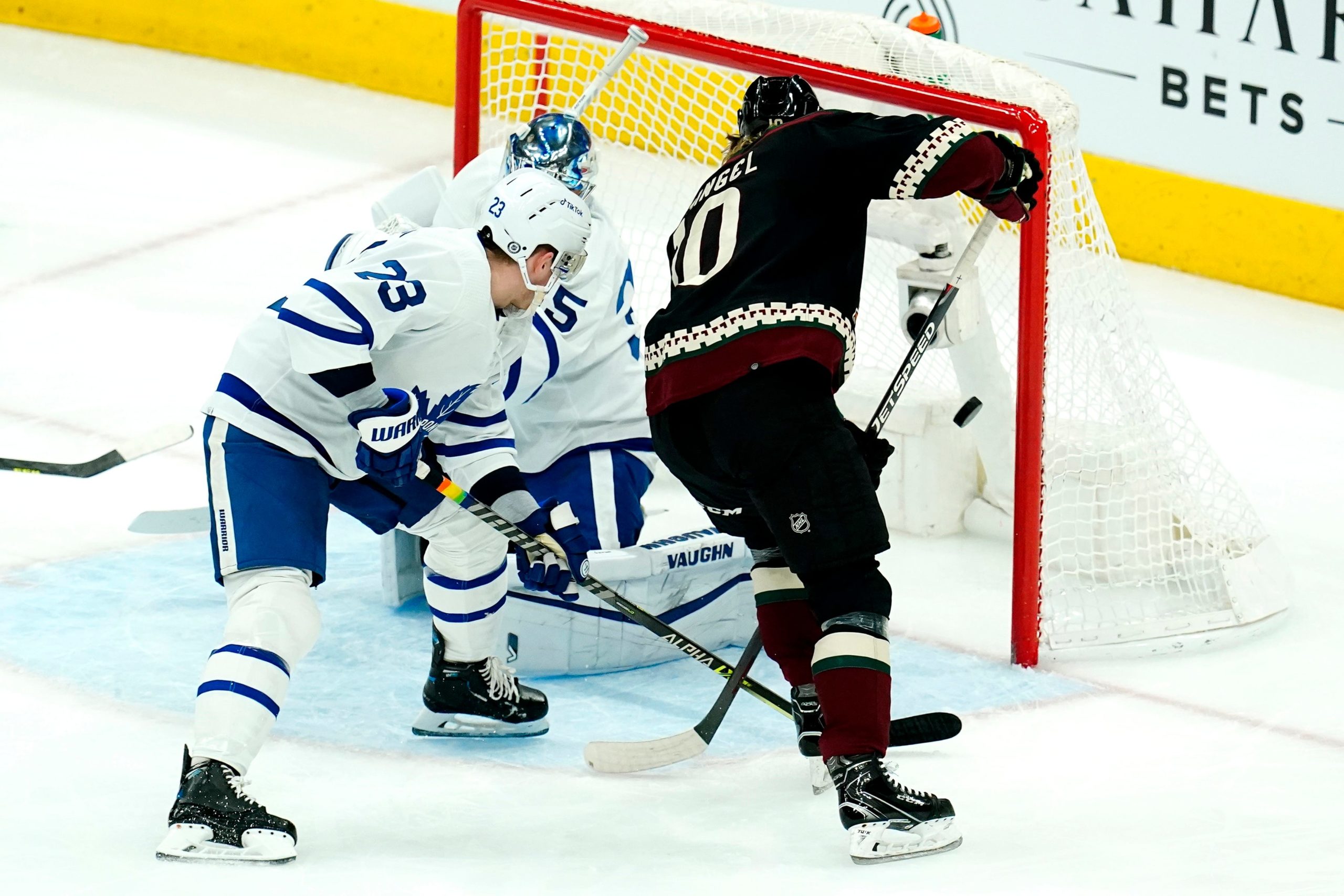
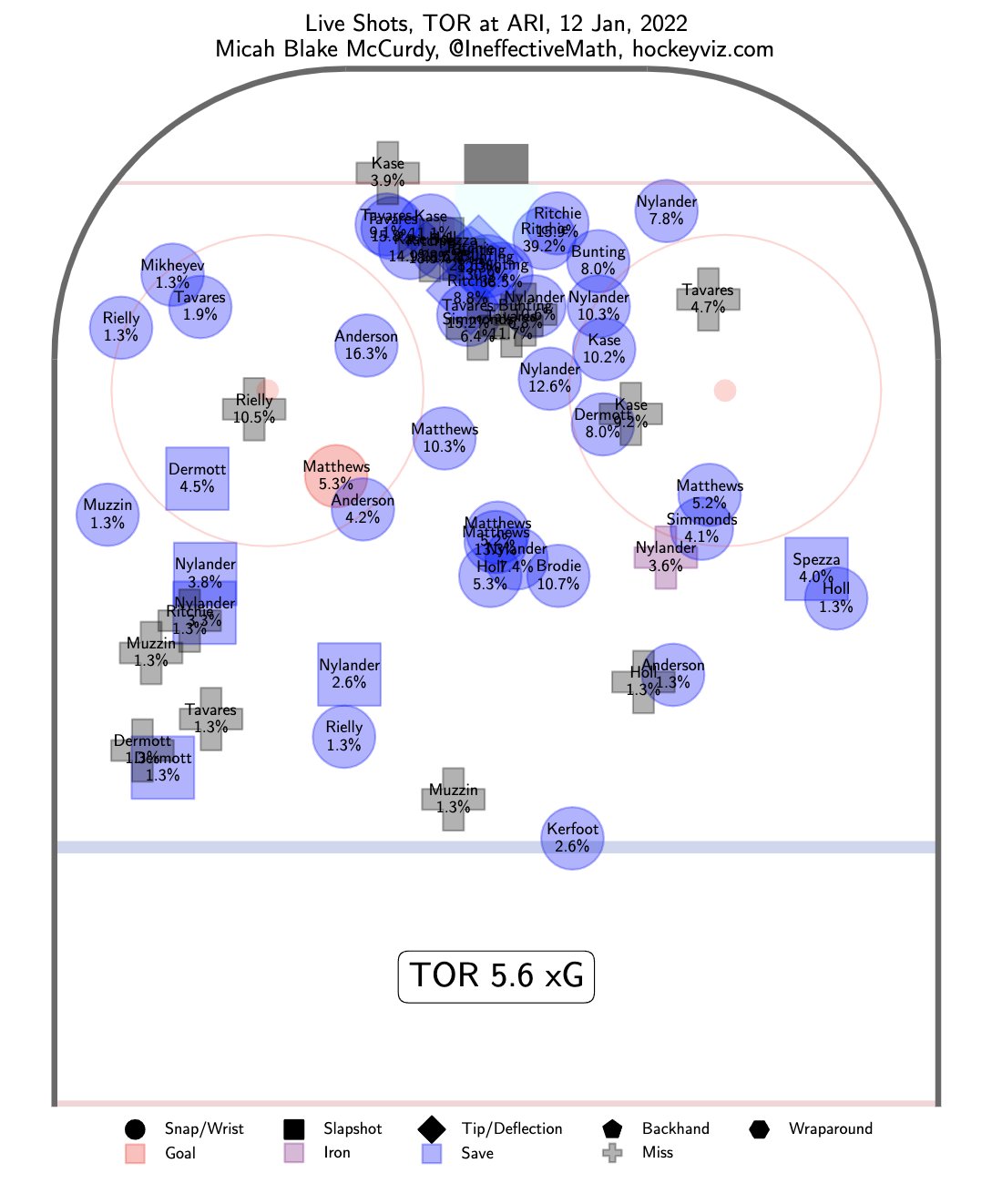
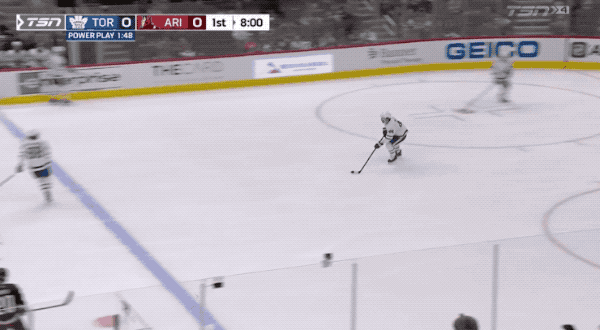
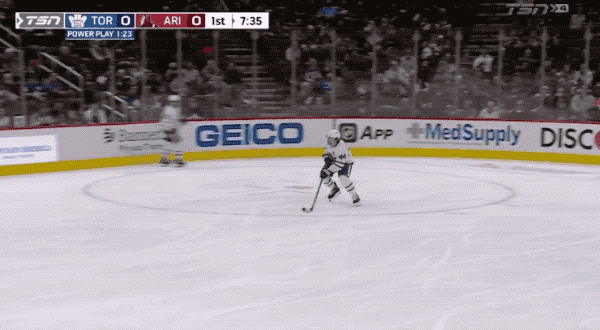
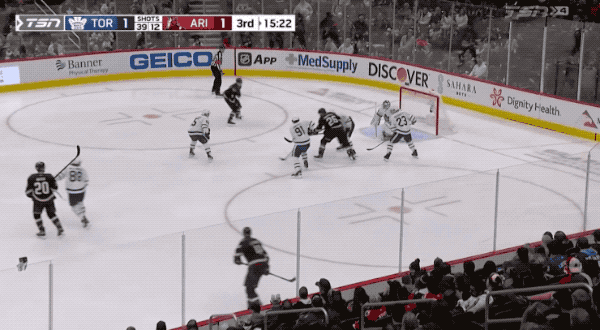
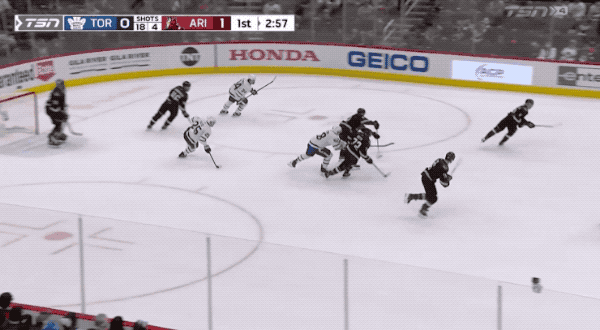
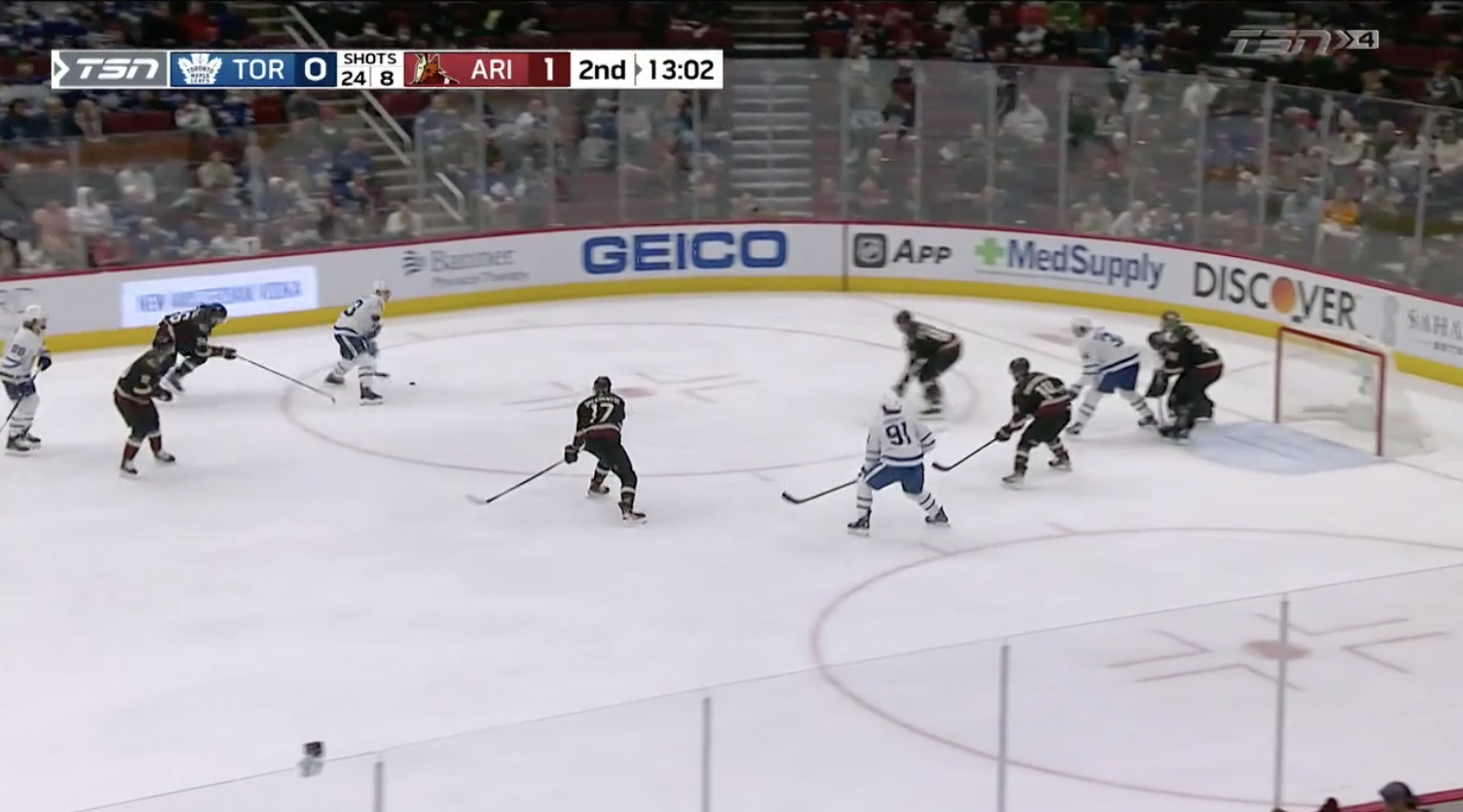
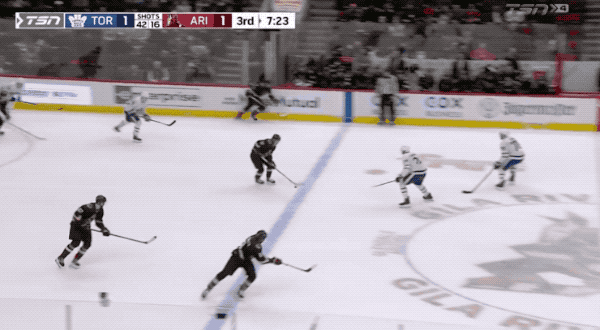
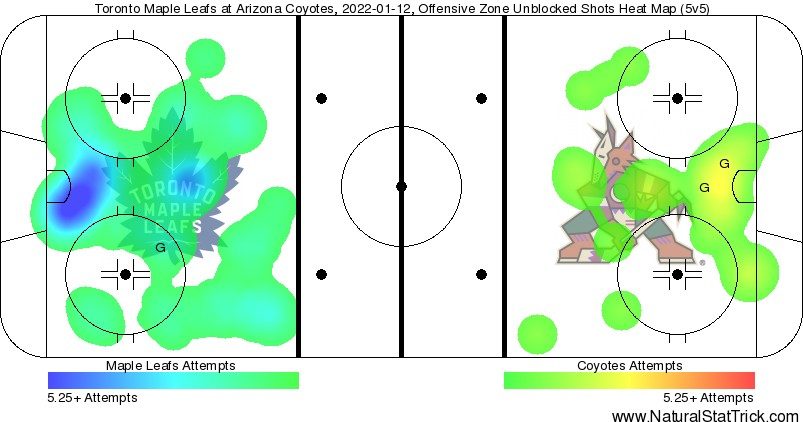
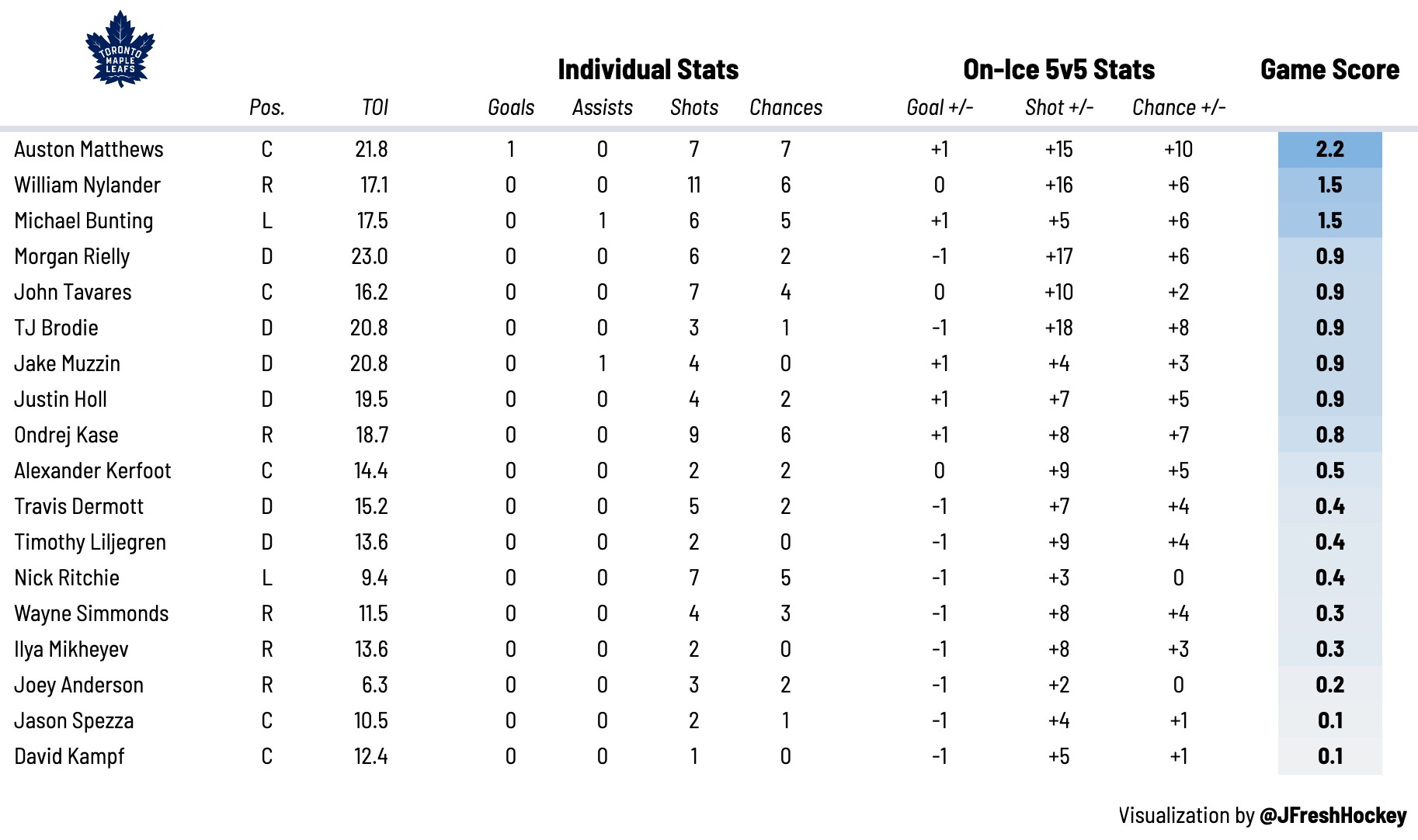


![Sheldon Keefe on the Maple Leafs’ struggling power play: “[We’ve scored] one out of 11 high-danger chances in tight to the net… We have been in those spots and haven’t converted” Sheldon Keefe, playoff press conference](https://mapleleafshotstove.com/wp-content/uploads/2024/04/keefe-pc-game-3-100x70.jpg)



![Jim Montgomery Post Game, Bruins 4 vs. Leafs 2: “[Marchand] still manages to get under people’s skin, yet he doesn’t cross the line” Jim Montgomery, Boston Bruins post game](https://mapleleafshotstove.com/wp-content/uploads/2024/04/jim-monty-pg-to-100x70.jpg)

